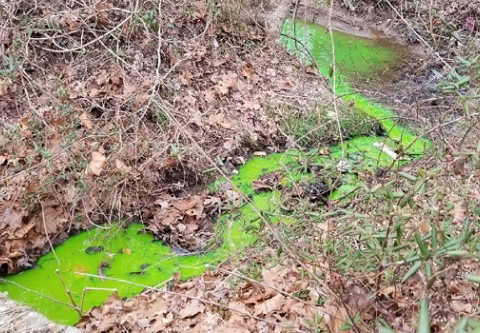
Maryland’s Chesapeake Bay Cleanup requires nutrient reductions from every sector that contributes to water pollution. Of the four major sectors contributing to Bay pollution, massive public investment has led to significant reductions in pollution from wastewater treatment plants; counties have permit requirements to reduce stormwater runoff; and agricultural pollution has seen significant reductions in recent years.
Unfortunately, pollution from septic systems is still unaddressed and continues to grow. Aside from the pollution issue, with changing rainfalls and our historic legacy of improperly placed systems, Marylanders around the state are experiencing failing septic systems — septic systems that are not adequately treating waste and putting public and environmental health in jeopardy. Maryland does not track failing septic systems, does not proactively inspect septic systems, and does not have sufficient resources available to help homeowners cope with expensive repairs that may be required.
Licensing Inspectors: Under previous state policy, people who inspect septic systems are not licensed, leaving homeowners vulnerable to improper inspections that can miss costly problems with a septic system when they are purchasing a home. While the state does not require septic system inspections when a home is for sale, most banks require it for a mortgage, and it's a good practice to avoid a nasty surprise after a home purchase. Clean Water Action and allies passed SB22/HB407 to require that people inspecting septic systems be licensed by the Maryland Department of the Environment. This will provide accountability and give home buyers certainty that the property they are purchasing has an adequately functioning waste system. For the environment, this ensures that when inspections occur they are done in ways that would catch problems and offer an opportunity to get them fixed!
Financing Repairs: When a failing septic system is found, homeowners are responsible for fixing it. Unfortunately, many homes have septic systems that would have never been approved under modern standards — the property may not have a backup dispersal field or may have the wrong soils, which can contribute to failure. To repair these systems a homeowner may be looking at a $30,000+ bill. Many homeowners cannot afford, or may not have the equity in their home, to take out low-interest lines of credit, and as a result put off these repairs. When repairs are put off, untreated waste continues to leach into surface waterways and groundwater. Clean Water Action is advocating to create financing for homeowners to repair or replace the dispersal systems for their units through low or no-interest loans, and in 2021 passed HB878/SB701 to enable counties to purchase bonds with a portion of their Bay Restoration Fee so they may offer financial assistance for septic repairs.
Creating a Regulatory Board: While many industries in Maryland have regulatory boards to license and oversee their industries, the septic industry does not. While the vast majority of the septic industry is professional, this lack of oversight enables bad actors to run amock with a system that is critical for human and environmental health. For years, Clean Water has participated in conversations about how best to oversee the septic industry to better improve service and safeguard against poorly designed, installed, or maintained systems.
Septic System Education: Many residents living on septic systems do not realize that their system is sensitive and requires maintenance and care to keep it working. A poorly maintained septic system can prematurely fail, a problem for nearby waterways, public health, and the value of the home. Find out more about how you can best maintain your system (and understand how a septic system works)!